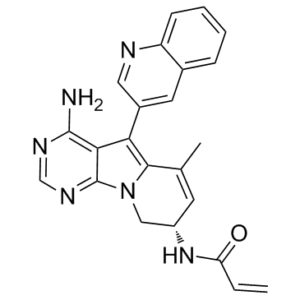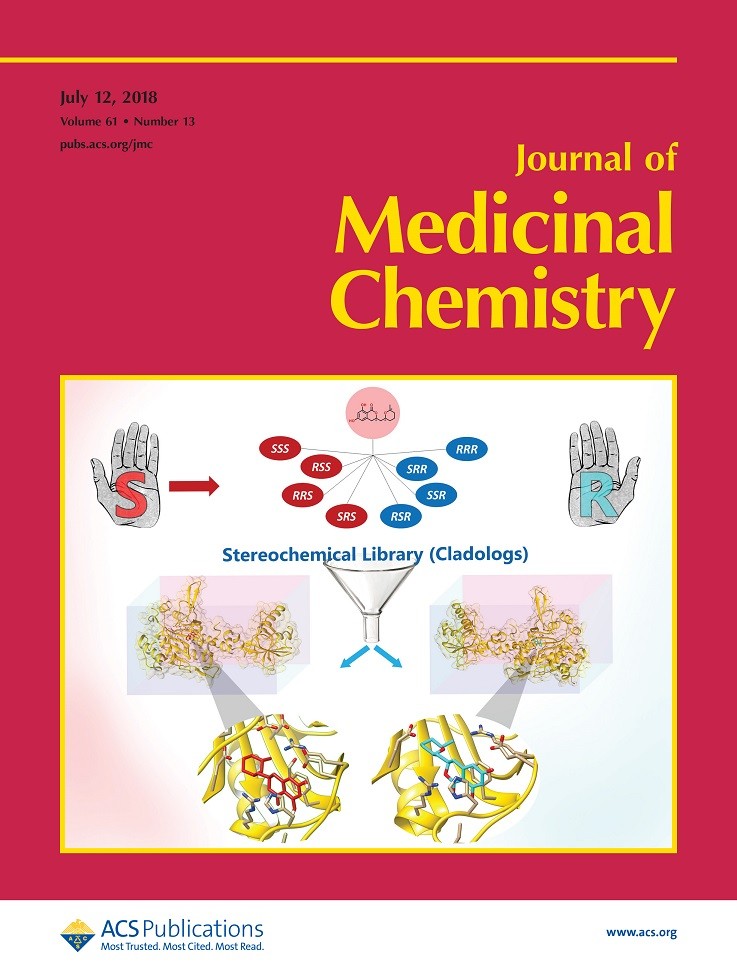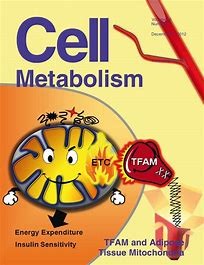Zipalertinib (TAS-6417)
This product is for research use only, not for human use. We do not sell to patients.

For small sizes, please check our retail website as below: www.invivochem.com
| Size | Price | Stock |
|---|---|---|
| 250mg | $800 | Check With Us |
| 500mg | $1550 | Check With Us |
| 1g | $2325 | Check With Us |
Cat #: V5049 CAS #: 1661854-97-2 Purity ≥ 98%
Description: Zipalertinib (TAS6417; CLN-081; TAS-6417) is a novel, potent, orally bioavailable and selective covalent/irreversible EGFR inhibitor with anticancer activity.
Top Publications Citing Invivochem Products
Publications Citing InvivoChem Products
Product Promise

- Physicochemical and Storage Information
- Protocol
- Related Biological Data
- Stock Solution Preparation
- Quality Control Documentation
| Molecular Weight (MW) | 396.44 |
|---|---|
| Molecular Formula | C23H20N6O |
| CAS No. | 1661854-97-2 |
| Storage | -20℃ for 3 years in powder formr |
| -80℃ for 2 years in solvent | |
| SMILES Code | NC1=C2C(N3C(C(C)=C[C@@H](C3)NC(C=C)=O)=C2C4=CC5=CC=CC=C5N=C4)=NC=N1 |
| Synonyms | TAS6417; TAS-6417; TAS 6417; CLN-081; CLN081; CLN081; Zipalertinib |
| Protocol | In Vitro | Zipalertinib (TAS6417) inhibits EGFR signal transduction, leading to cell growth inhibition and apoptosis induction in NSCLC cells driven by EGFR exon 20 insertion mutations. Zipalertinib (TAS6417) covalently modified the cysteine residue at position 797 of recombinant EGFR harboring an in-frame insertion mutation in the exon 20 region. Zipalertinib (TAS6417) inhibits EGFR phosphorylation and downstream molecules in NSCLC cell lines expressing EGFR exon 20 insertions, resulting in caspase activation. |
|---|---|---|
| In Vivo | Zipalertinib (TAS6417) (100 and 200 mg/kg/day) prolongs survival of animals bearing lung cancer. Zipalertinib (TAS6417) administered at 20 mg/kg, which achieves complete suppression of tumor growth, induces a significant decrease in pEGFR, leading to reduction of pAKT and pERK at 1 h. The inhibitory effect is still noted at 6 h, and phosphorylation of EGFR, ATK, and ERK recovered by 24 h. Zipalertinib (TAS6417) had no effect on EGFR-independent proliferation in NCI-H23 or NCI-H460 cells. Zipalertinib (TAS6417) (10-200 mg/kg) causes persistent tumor regression in vivo in EGFR exon 20 insertion-driven tumor models. TAS6417 inhibits mutant EGFR in tumors but not WT EGFR in skin tissues. |
These protocols are for reference only. InvivoChem does not
independently validate these methods.
| Solvent volume to be added | Mass (the weight of a compound) | |||
|---|---|---|---|---|
| Mother liquor concentration | 1mg | 5mg | 10mg | 20mg |
| 1mM | 2.5224 mL | 12.6122 mL | 25.2245 mL | 50.4490 mL |
| 5mM | 0.5045 mL | 2.5224 mL | 5.0449 mL | 10.0898 mL |
| 10mM | 0.2522 mL | 1.2612 mL | 2.5224 mL | 5.0449 mL |
| 20mM | 0.1261 mL | 0.6306 mL | 1.2612 mL | 2.5224 mL |
The molarity calculator equation
Mass(g) = Concentration(mol/L) × Volume(L) × Molecular Weight(g/mol)
Mass
=
Concentration
×
Volume
×
Molecular Weight*
The dilution calculator equation
Concentration(start)
×
Volume(start)
=
Concentration(final)
×
Volume(final)
This equation is commonly abbreviated as: C1 V1 = C2 V2
Concentration(start)
C1
×
Volume(start)
V1
=
Concentration(final)
C2
×
Volume(final)
V2
Step One: Enter information below
Dosage mg/kg
Average weight of animals g
Dosing volume per animal µL
Number of animals
Step Two: Enter the in vivo formulation
%DMSO
+
%
+
%Tween 80
+
%ddH2O
Calculation Results:
Working concentration:
mg/ml;
Method for preparing DMSO master liquid:
mg
drug pre-dissolved in
µL
DMSO(Master liquid concentration
mg/mL)
,Please contact us first if the concentration exceeds the DMSO solubility of the batch of drug.
Method for preparing in vivo formulation:
Take
µL
DMSO master liquid, next add
µL
PEG300, mix and clarify, next add
µL
Tween 80,mix and clarify, next add
µL
ddH2O,mix and clarify.
Note:
- (1) Please be sure that the solution is clear before the addition of next solvent. Dissolution methods like vortex, ultrasound or warming and heat may be used to aid dissolving.
- (2) Be sure to add the solvent(s) in order.




































